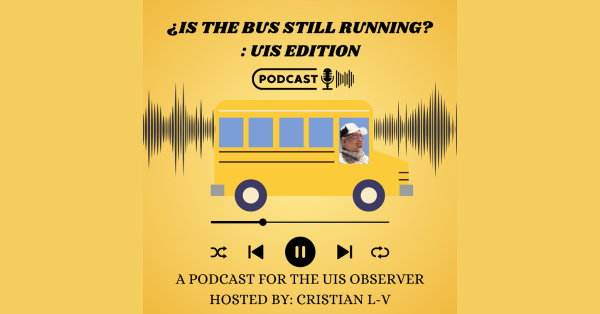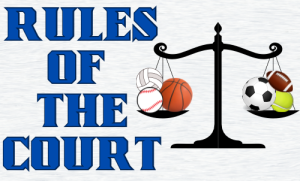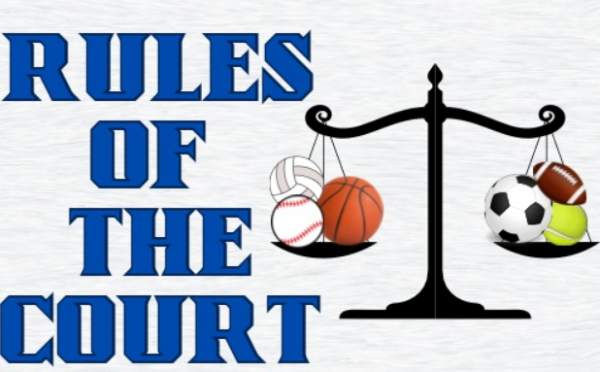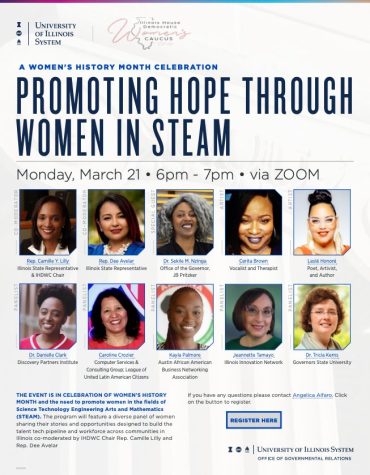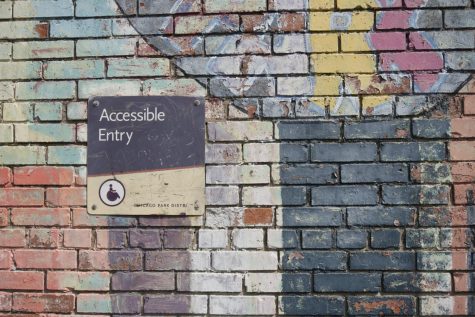Bumble Brain Ep. 2 BHM, BLM, and How Students Can Make a difference
[00:00:00] Camille: Hello all, and welcome back to the Bumble brain podcast! My name is Camille, I’m a psychology major at UIS. And today I am joined by my colleague Jermaine, who is a business major at UIS. Welcome, Jermaine!
[00:00:18] Jermaine: Thank you for having me, how’s it going?
[00:00:19] Camille: Today’s topic we’ll buzz through is relating to black history month’s black lives matter and what we can do as students to get more involved.
[00:00:27] So Jermaine, the first thing that we’re going to kind of talk about is what black history month is and what Black Lives Matter is. And so, I guess what we should first kind of do is talk about black history month as a whole. So, for those listening, it was the entirety of March this year, as it is every year. And it’s meant to give us something of a focus to the history of black individuals, as well as our culture, and give some more understanding to the struggles and the stride that black individuals go through.
[00:00:54] So I just want to ask you why is black history month important, at least even [00:01:00] just to you?
[00:01:01] Jermaine: Well, black history is important. In general, overall, like everyone should have that knowledge, especially in a world that’s so, you know, discriminatory that, you see a lot of people who are racist, who are uncultured, who don’t understand a lot of the hate that they’re spreading themselves. Understanding that, and having that month to really, you know, have an impact on that is a big thing.
[00:01:29] But I think we should have it for more than a month though, you know because just learning more about the culture and learning more about like black history would help people respect different cultures and black people.
[00:01:43] Camille: Yeah. I’ve always thought that too, actually like having it for a month, it’s valuable to have a month for it and everything.
[00:01:52] Something I’ve always kind of thought is like, when we keep it as a month, that almost feels like once that’s done, you don’t have to think about black history or black excellence anymore, then it’s just like, okay, ‘what’s the next marginalized group?’ Like, it’s almost like it minimizes some of those experiences, while at the same time amplifying the voices that need to be heard.
[00:02:13] So it’s a weird kind of dichotomy there, but like, I definitely agree with you on that. I also noticed that for a lot of UIS students, it kind of helps develop an identity for them, and a group to feel part of. That’s at least one of my values is being a part of a greater group of people that you can relate to.
[00:02:31] And so I feel like having black history month events at UIS, having events at all relating to black individuals and black excellence at UIS really helps people at UIS feel like, like they belong. Like, like a sense of belonging, and that’s one of the things I’ve noticed.
[00:02:48] Jermaine: I definitely liked the events that they had on campus so far. Like one of my favorite events that they had, well, when it came to black history was step Africa. I really love that.
[00:03:00] But then they also have like these other events, you know, that, you know, for black history month, but I think there should be more, the events that we had on campus were more… small.
[00:03:15] We’re not as grand scale as it really should have been. like I said before, like black history month is super important, so the school should treat it like it’s super important. a lot of the events that happened with black history month, I know were run by the students. Students came up with the ideas, students coordinate these events, all this was mainly due to the students here on campus, not the UIs staff and faculty and you know, the higher-ups, everybody like. [00:03:45] That’s what I saw, you know?
[00:03:46] Camille: Yeah. Yeah. It definitely does seem very student-led, with like the exception being the diversity center and whatnot. But it’s like when you get outside of that, students have to put a lot more work into getting information about these [00:04:00] events and about opportunities and things like that.
[00:04:02] it almost feels like they need to be like struggling in some way to actually get information on how to get more involved within the black community on campus. Like until they need money from scholarships. Uh, community when they’re like, you know, dealing with mental health struggles, then it almost feels like they’re distant from that community or like it even doesn’t exist at times.
[00:04:25] Jermaine: And one thing is like, it’s, non-existent outside of black history month. You don’t really see UIs do too much or schools in general talking about, you know, the struggle, you know, things of that nature. You don’t really get that. And like when it came to, some events they did before, like I believe at 2020 when they did the protest, that was, you know, so many events that I was expecting to see carry out, you know, from years to come, but it didn’t happen.
[00:04:58] I can’t really remember a supersubstantially impactful black history event that we had on for a minute since that protest. And we don’t really get that often.
[00:05:12] Camille: Yeah. And, and especially not to that magnitude of involvement, like, I don’t know if like it’s hard cause like I, as much as I work in the diversity center, I don’t feel like I get a great scope of all the students that come in there and that are involved in there. But it does feel like, like the amount of people has decreased over time that are getting involved in those activities and events. And so, it’s like, you know, it’s a little concerning, but it’s also like, like what can we do about that? Which we’ll get into later in this podcast, but I’m like, that’s an important thing to kind of consider there. Because you know, like you would think of course there are other universities that are getting more diverse in how they discuss and address these topics from marginalized communities.
[00:05:58] But our sister schools, UIC and UIUC, I feel have done it like a much more like a greater effort towards trying to expose these, you know, lesser-known communities and these communities that need that support. And so, it’s just, you know, like it’s something I feel like as a U of I school, we deserve some of that same.
[00:06:20] Yeah. Treatment with that. And we shouldn’t have to, as students break our backs to put that forward, but you know, like, like there’s effort, but like, you know, like I think our needs exceed that a little.
[00:06:32] Jermaine: Like, it feels like we’re the lesser of the three schools, just because we’re the smallest. When I feel like that should be the reason for it to be more because we’re such a small community.
[00:06:42] We already don’t have as many minorities on. It’s definitely a white majority school. Right. You know, and you know, having more black history or black lives matter events on campus would definitely help us feel more comfortable.
[00:06:58] Camille: Yeah. I definitely agree. [00:07:00] And then like, you know, with this, I mean, it’s kind of been like implied through our discussion, but black history month ties directly into black lives matter and into support.
[00:07:11] Black individuals as a marginalized community and how they’ve been impacted by, you know, political issues and, and criminal justice issues. And so it’s one of those things where it’s like, like this kind of feeds into people’s understanding of racism and their understanding of how to be supportive to the black community as a whole, you know?
[00:07:31] So it’s like, like it’s good that we talk about these things. but there definitely. Some issues noticed, I would say, like that we’ve already kind of talked about and just like in general with addressing these topics, and you already kind of like brought up some already, but how do you feel about specifically, like in classrooms?
[00:07:54] How do you think our courses too with discussing these topics? Just like the average ones, not necessarily social psychology [00:08:00] ones.
[00:08:01] Jermaine: I actually had a couple courses from last year when my professors that. They talked about something with black history or something along those lines, like every day in class.
[00:08:13] but I, you don’t get that a lot. I know for a certain, like the students that I know on campus, they don’t get that. They don’t get teachers who teach them about black history or anything along those lines. I have a, for black history month, I just in the classroom, you just don’t see it too often. You don’t hear it too often.
[00:08:32] Camille: Yeah. That’s been like the case for my classes too. Like I’ve, you know, I’m a psychology major. So, I’ve taken a lot of classes that have like racism as some part of the discussion in there. Like they try to sneak it in there, like, oh, by the way, you know, like, let’s talk about, about racial discrimination, but like during black history month, there’s usually like one comment about it from professors like “It’s black history month, you know, make sure you’re diving into black history.”
[00:09:00] And then they’re pretty silent after that. And some part of it, I do think is a bit of…I don’t know what to call it, but what I’ve noticed is that white professors specifically tend to seem almost nervous to tread on that water and will avoid it entirely.
[00:09:18] So instead of risking discussing it the wrong way or addressing the wrong topics in their minds with it, they decided, “well, I’d better not risk it at all.” Not talk about, you know, any marginalized communities or anything like that, which is concerning. And it’s hard to kind of see what their cause like, you know, there’ve been times where people have tried within the white majority to talk about these issues and to bring light to them, and at times it’s ended up coming across, like, like they didn’t understand, or there was some ignorance behind there that, that wasn’t fueled by a desire for research. You know what I mean?
[00:10:00] It’s hard to kind of find that line where we have people spreading information and then getting good resources on information, on discrimination against black people without overstepping. So, I kind of want to hear your thoughts on that because, it’s a pretty big problem.
[00:10:17] Jermaine: I think people need to do their own research on like different cultures, not even just black, you know, learn more about like Hispanic culture, more and more about different cultures that would just make you an overall, I think will make you a better person overall, because you’ll be more culturally inclined.
[00:10:33] You’ll know more about other people, you know, you’ll be able to understand people more, until people like go out of their way to like, learn more about black history. And that’s not just for black history month, like in general, until people are able to do that. They won’t really try to tread those boundaries because they don’t really feel too comfortable around it or they, or they feel too comfortable about it, but they don’t know anything about it, you know?
[00:10:59] [00:11:00] So to keep people from being ignorant, look up these, you know, black look up some black history facts. I know some tic talkers and I know some people on social media, I know quite a few people. Who used our platform to spread black history facts, you know, but find ways to like, learn more about different cultures, you know, go beyond what you’re used
[00:11:22] Camille: to.
[00:11:23] Yeah, I really, yeah. Cause we really do deserve to, as students like get more immersed in these things and we deserve to have professors that want to be immersed in these things as well, because you know, like it’s understood, of course, there are going to be professors of different races that don’t understand black history of.
[00:11:38] You know what I mean? Like I think on some level we all could stand to learn more about how to be a better ally to the black community, you know? So, it’s like, it’s understandable. What’s not understandable is avoidance out of fear of that ignorance because you know, avoidance just fuels ignorance. So, it’s like, there’s nothing wrong with not knowing.
[00:11:58] There is something wrong with [00:12:00] avoiding learning more. So, it’s like, you know, I think that’s something that we should thank you. We should, that we should take away from that. And so, it’s like that it goes to students too, but like that’s mostly on a professor level because I think often there’s this perspective that professors should know everything and that they should have an, a sense already on how to address these topics.
[00:12:20] Honestly, I think students would appreciate it if you literally pulled up like Google on online. What are those presentation boards on like a whiteboard or something? Yeah. If you do that in front of the students and say, I actually have no idea, let’s figure it out together. I think they would respect them a heck of a lot more.
[00:12:41] You know what I mean? Like that would just up the respect, at least for me, that would, because it’s just like, like, okay, you’re trying, you know, rather than just like saying. I don’t know, or just making something up on the fly to avoid thinking about it. especially within the race topic, it would be some thoughtful class discussions.
[00:12:59] [00:13:00] Yeah. So, I think that’s, you know, one of those things where I hope that changes and I hope that that kind of people get more comfortable with that. You know, something else that I’ve kind of noticed as an issue is poor representation. That I, I think that’s been going on for a minute, but like, I, you know, it’s still good to talk about it because at least in Springfield, like, you know, I, I don’t technically live in Springfield.
[00:13:27] I live just south of Chicago. and so I haven’t seen more presentation of black individuals further up Northern Illinois being further down south being in Springfield. Doesn’t feel like there’s as great a population of black individuals. It almost feels like the community is so dispersed that there isn’t much like that we have to go off of.
[00:13:51] And so it’s just like, you know, what can we even do as black students seemingly on an island? Do you know what I mean? Like that’s how Springfield feels. It feels like an [00:14:00] island to some degree. Like I just,
[00:14:03] Jermaine: it’s just the fact that we just got to make our presence known. this is a town. Obviously, you know, there’s no real black commute.
[00:14:12] I mean, there’s black, there’s a black community, but it’s not as strong. I don’t know how to really explain it.
[00:14:17] Camille: It’s not really. Yeah. We’re not as integrated or as interconnected, I guess I could say. And one of
[00:14:24] Jermaine: the things I definitely see, and like, as soon as I came to Springfield, when I looked at my, of all things, I looked at the radio stations and I’m like, Hey, where’s the black radio station.
[00:14:35] Like, where can I listen to like hip hop? Any like black sort of, you know, music like that. And there’s no station for it. There’s absolutely no station for it out here. and just that, that alone was just right there. It was just like, man, this is definitely
[00:14:54] Camille: yeah.
[00:14:56] Jermaine: And stuff that we have to do. Like we [00:15:00] have to, we have to really make ourselves, no, we have to make a presence for ourselves because no, one’s going to make it feel.
[00:15:08] Camille: So actually, that reminds me of something that was said by a Tiffany Mathis, a CEO and executive director at boys and girls clubs of central Illinois. Uh, she had been a part of the queer Nexions event that took place just earlier today. and in response to a question on how to build or maintain esteem in the face of stereotypes, she had told me, uh, speak life into yourself.
[00:15:33] There are going to be less and less sounds of applause. The higher up you get. And very often you will find that people will not be present to support you in the face of your success. And so that especially applies within the black community. and it’s really important to just be there for yourself and to move yourself forward.
[00:15:53] and that is incredibly true, but it almost feels like that shouldn’t have to be how it is. You know what I mean? Like [00:16:00] I think. I would go as far to say we deserve support from each other, especially since, you know, there’s a lot of, at times in group, disrespect and in group discrimination that is especially hard because when nobody else is supporting you to have your own people, not supporting you is just devastating.
[00:16:21] And so I think that UIS especially needs to have a more concrete. Safe community for black individuals. I know we have the black student union, but I don’t know how many people know that that’s a space for them. I don’t know how many people will know that that’s an option, or how, you know, how widespread the events are getting at this point.
[00:16:44] So I think, you know, that’s just one of those things to consider is that like students really deserve more open opportunities for inclusion and whatnot within the black kids. ’cause we really don’t see a
[00:16:56] Jermaine: lot
[00:16:56] Camille: of it on campus. Yeah. It’s just, you know, like, like [00:17:00] it could definitely be better. No doubt. So that’s just one of those things.
[00:17:05] but there has been so much effort from the students that I have seen, which is just, that’s kind of what makes it better. You know what I mean? Like, it’s one of the things where it’s like really empowering to see the students are putting so much effort forward. I will see. Sororities and fraternities in the diversity center working together to just create this, this space of community and inclusion and whatnot.
[00:17:35] especially Justin Rose, who is our director at, uh, the diversity of center. And he just does an incredible job at keeping students connected. Identity isn’t across cross-culture. And so that, you know, I mean like places like diversity that are good places for these types of things, but it’s like, you know, if it stays in that bubble, I think it’s a great disservice to students.[00:18:00]
[00:18:00] You know, I think it would really be helpful if we expanded these things. so, you know, with that in mind, how can students make efforts to get more involved in the Black Lives Matter movement and in the black community in general, it was like as an. Well,
[00:18:16] Jermaine: like you were mentioning before. I think having more students go to the diversity center and actually checking that out and figuring out ways they can get involved from, you know, at the diversity center, that could be very beneficial, but also, like supporting black businesses because there are some black businesses in Springfield.
[00:18:37] I know, but there are some black businesses out here. like I got, I go to a barbershop around, it’s called the barbershop. It’s on south second street, check them out. They really good. and there were other black businesses that people could check out, may make it a thing that I make it a thing to check out a black business, at least every month, at least every month you can check out at least one black business every month.
[00:18:59] Camille: Right. It’s possible. You know what I mean? Like even. Financially doable. Like it still helps to know where those places are. Know the locations, know the staff, know the owners, so you can make those recommendations to people who maybe do have the money. Cause I know we’re broke college students. Right. I get it.
[00:19:17] I really do. But it’s something like, you know, like support comes in so many different levels. Realistically. It’s not hard. I mean, like I don’t have a car, so I use the bus to get around it. Wouldn’t be very difficult to get on. Go to downtown Springfield and just check out what’s there, you know, just see what’s around.
[00:19:35] ‘Cause you know, even just having familiar faces in the community, their own will make you feel more interconnected into the community.
[00:19:45] Jermaine: I do feel like, the school should have events that are not completely on the campus, but maybe around like in, in Springfield, like around the area somewhere.[00:20:00]
[00:20:01] Something, I don’t know. I don’t want to say like a protest or something like that, but some events could be off-campus, but we could still have UIs students attend, but it’d be more for like the community UIs could speak more to the community, you know?
[00:20:15] Camille: Yeah. I think that, you know, like I would have to see how our school has been in the past with connecting the community to the school. That would be incredible to see, I feel like our campus is a lil isolated, you know, like we- there’s the road surrounding it, lots of corn. And then you get to Springfield. Like it’s almost like [there’s] Springfield… and then there’s the University of Illinois Springfield.
[00:20:43] It’s not like we’re a part of it. So, it’d be really nice to see bridges between us and Springfield through events, especially that are geared towards the black community, that would be incredible. So, you know, I hope that’s something that maybe is going on and maybe I just don’t know about it or something that will be going on soon. [00:21:00] Because I don’t think we should wait for another black tragedy to celebrate the black community.
[00:21:04] Oh, you know,
[00:21:06] Jermaine: Oh definitely. You have to look at things in a different way, in a different perspective in the way to really do that is to become more culturally educated. Especially with, you know, learning about black history and black and getting more involved with black lives matter and things like that. That’s the way for you to grow as a person and go beyond all that hatred that’s been built up in history and all that.
[00:21:33] And, you know, we, we can move together to get, we can move together
[00:21:37] Camille: basically. Yeah. Yeah. I definitely agree with you that those things can really help facilitate better discussion about topics within, you know, black lives matter, black history month, and the black community. Like those are things, you know, it’s not difficult.
[00:21:52] It feels difficult because we’ve almost been trained that it’s like, you know, that there’s so many wrong ways to talk about it, that you know, that there’s only one right [00:22:00] way. And if you don’t do that, then it’s not worth it. But yeah. You know, I, I definitely think that as long as you are making clear and conscious efforts to learn more and letting people know along the way, like, you know, I could always stand to know more or, you know, like I’m speaking from a place of being an ally, not necessarily, you know, like directly a part of the community and a part of those struggles that makes it clear how much as a professor, as a student, you’re trying to be involved and you’re trying to really aid and, and how we progress.
[00:22:29] Jermaine: Also listen to the people of color. Like if, if we say something is like racist was, or something just feels off or anything like that, you know, try to understand why we’re saying that, why we feel that way don’t quickly knock it off, get down into the different parts.
[00:22:45] Camille: Yeah. Break it down. Yeah. Cause it, you know, very often those things are written off.
[00:22:52] I agree with you. It’s like to, it’s important to recognize one’s position as an ally and part of that. You know, being a good ear, not trying to instantly be the judge or jury of these things, because that’s, you know, that’s already led to a lot of issues in the past as it is. So, it’s like, you know, it just helps to do those things.
[00:23:12] Okay. And
[00:23:12] Jermaine: you can’t just decide that you don’t just decide that you have to actually understand, you know, the other person before you actually can make a judgment on them, you know? So
[00:23:22] Camille: yeah. Well, thank you so much, Jermaine, for joining me on Bumble brain today. Uh, and thank you all for listening. Don’t forget to stay busy-minded.[00:24:00]
[00:25:00] 🎵


